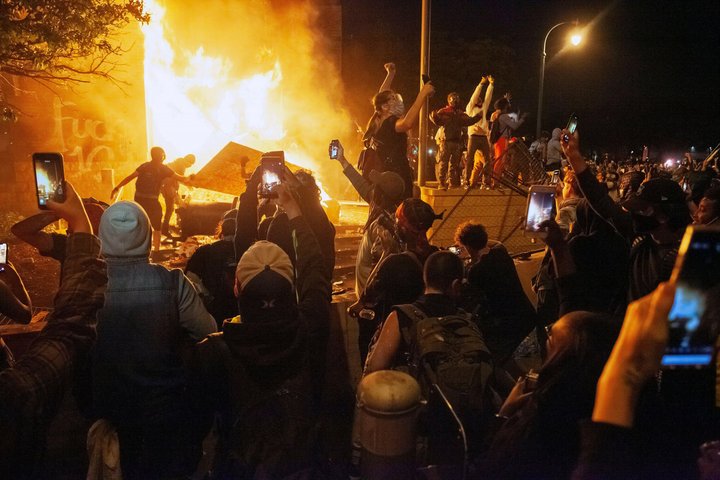
In 2020, the United States was subjected to 574 violent riots which resulted in injuries to over 2000 police officers, looting of businesses, over 2 billion dollars in damage to property, and over 20 deaths including that of retired St. Louis Police Captain David Dorn.
Unlike the one day of violence on January 6, 2021, there have been no congressional hearings investigating the 574 violent riots in 2020. This must be corrected.
1. Hearings would provide an examination of the accountability of elected officials. Many mayors and governors are believed to have told their law enforcement officers to stand down, and many district attorneys and federal prosecutors refused to file charges, giving aid and comfort to those responsible for doing harm. In 2022 A New Mexico judge ordered Otero County, NM Commissioner Couy Griffin be removed from office, effective immediately, ruling that the January 6, 2021 riot was an insurrection and that Griffin’s participation in it disqualified him from holding elected office under Section 3 of the 14th Amendment.
Section 3 of the 14th Amendment, also known as the Disqualification Clause, bars any person from holding federal or state office who took an “oath…to support the Constitution of the United States” as an “officer of any State” and then “engaged in insurrection or rebellion” or gave “aid or comfort” to insurrectionists. Griffin, as an Otero County, NM Commissioner, took an oath to “support and uphold the Constitution and laws of the State of New Mexico, and the Constitution of the United States.”
If mayors, governors, and district attorneys responsible for public safety in the cities where the 574 violent riots took place in 2020 gave aid and comfort to the rioters by having police stand down or failing to prosecute should they also be removed from office? Congressional hearings would help develop those facts.
2. Holding hearings on the riots would also provide an opportunity to examine the impact of the violence on law enforcement officers and their families. The 2020 violent riots resulted in significant injury to over 2000 police officers, and many officers faced physical and emotional trauma as a result of their experiences. By holding hearings, Congress would be able to assess the extent of the impact on law enforcement officers and their families and to identify any support that may be needed for their recovery.
3. Holding hearings on the riots would also provide an opportunity to examine the role of outside agitators in inciting violence. Many of the riots were organized and led by individuals and groups with a clear anti-police agenda. By holding hearings, Congress would be able to identify and hold accountable any individuals or groups that incited violence and violated federal criminal laws by operating across state lines.
4. By holding hearings, Congress would be sending a message to the American people that it is taking action to address the issues that allowed violence to get out of control to prevent similar incidents from occurring in the future. This would help to restore public confidence in the ability of Congress to address the issues that are facing our country and would help to promote healing and reconciliation in individuals and communities affected by the violent riots.
See also: Two-Thirds of Voters Want Congress to Investigate 2020 Riots